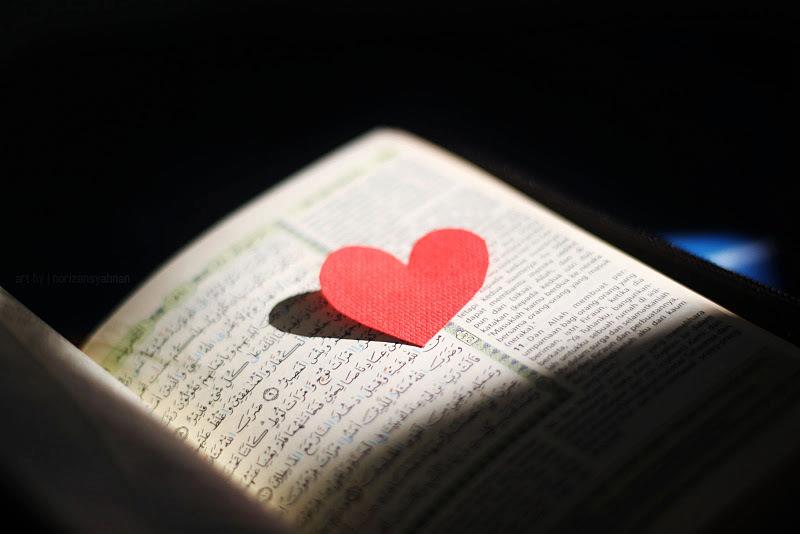Editorial Note: After an investigation lasting more than two months, the former president of the Institute for Islamic Education in Elgin, Ill, Mohammad Abdullah Saleem, has been charged with criminal sexual abuse for an incident involving a 23-year-old women, which occurred in April 2014. Saleem, 75, is in custody. The school, founded in 1989, is a full-time residential and day educational institute aiming to provide (according to its website) “an education in the sacred and intellectual foundation of Islamic heritage.” Four women are part of a lawsuit filed against Saleem. Several other victims, both women and men, have come forth alleging sexual abuse against Saleem (spanning more than three decades) and possibly other members of staff, but have not (yet) joined in the lawsuit. Please click here, here and here to read more about this developing story. Click here to read the press kit developed by HEART Women & Girls, a Chicago-based organization founded by Nadiah Mohajir and dedicated to promoting sexual and reproductive health in faith-based communities. HEART has worked closely with the victims in this case. The following is a statement issued by members of Muslim scholarship, organizations and academia, in regards to the ongoing case. It is not a closed document.
STATEMENT
The Muslim community has come together to support and empower victims and survivors of sexual abuse. We support each victim and survivor to come forward to get help. Those who are connected to the case in Chicago should visit http://www.safetyforsurvivors.com/. If you are unable to find resources in your personal community, please also visit this website.
The signatories below represent all parts of the Muslim community, including those of traditional scholarship, academic scholarship, chaplaincy, community leadership, among Sunni and Shi’i communities. The signatories each signed on to this document, though various editions in editing might have slight modifications. If you represent your Muslim community and wish to add your name to this statement, please email samar.kaukab@gmail.com.
If you are a victim or survivor, you have our full support and prayers. If you are a family member of a victim or survivor, we support and pray for you to assist the victims and survivors.
This is a new day for our community. A bright day, Insha Allah.
In the name of God, the most Compassionate, eternally Compassionate.
Dear Muslim Sisters and Brothers:
In light of recent sexual assault allegations in Chicago, we submit the following.
As scholars and religious leaders, we write to address the very grave matter of sexual abuse and criminal, predatory behavior perpetrated by religious leaders within our community. We must bear witness to the spiritual and legal teachings of our faith. We must denounce this heinous form of oppression and violation. In our traditions, we have higher objectives that require us to protect lives and children. We must turn our hands against the perpetrators. We must hold the criminals to account before God and the American judicial system. We must work for the healing of the survivors, their families, and loved ones. And, we must put in place new checks and balances to protect current and future generations from such appalling, and soul-tearing violation.
It is important to note at the outset that this is not merely a legal issue. It is about the rescue and rehabilitation of souls that have been violated in the worst imaginable way. Their trust has been betrayed. Their bodies and souls have been violated. And, because these crimes have been perpetrated by religious leaders, their relationship with their faith and with God has been poisoned. The scars of sexual violence are life-long. The survivors must bear them for the rest of their lives.
This letter, then, first and foremost, is written in a spirit of loving support and prayerful solidarity with the survivors. Second, it calls for a community-wide revolution in the way we respond to this evil within our communities.
In this spirit, then, we humbly offer a few points.
1. As Muslims and people of faith, we must stand for justice.
O you believers! Hold up justice, as witnesses to God, even though it be against yourselves, or your parents, or your kin, regardless of whether he be rich or poor. God is a better Protector to both (than you). [Surah al-Nisa 4:135]
Thus, regardless of what our families or the community might say, regardless of the position or status of the perpetrator, we must stand together as witnesses before God. To do otherwise is to ignore God’s clear teaching as well as betray the victims.
2. Seek immediate help.
If you know or are a victim of sexual harassment, sexual abuse, or sexual assault, seek immediate help. We often think that sexual violence is only rape. For further examples, please check here.
If you do not know how or where to seek help, begin with a trusted family member or friend or teacher, who can help you access the professional resources that exist for victims within and beyond the community. Qualified and compassionate people are waiting to help, and so we have both a personal and collective obligation to ensure that the victims get help, immediately.
Even if the incident(s) you experienced were from long ago, seek help. The effects of such trauma are long lasting.
3. Inform law enforcement.
We must never hesitate to inform law enforcement when a crime has been committed, especially one of such a heinous and serious nature. Officers are given special training for the care, interviewing, and protection of victims of sexual violence. They have strict rules for confidentiality. The police have the power to intervene so that the victim will be protected from further abuse. Law enforcement must be part of our community’s collective strategy for combatting this criminal behavior within our mosques, schools, and families.
Even if the abuse and violation occurred a long time ago, law enforcement should be informed immediately, as there may still be time for investigation, prosecution, and protection for both the survivor(s). We must also protect others who are in danger of being violated by the sexual predator. For the importance of consulting local law on such matters, please check here.
4. Support the victim.
As believing women and men, we must stand together for the sanctity and beauty and innocence of the victims. The prominence, fame, or power of the perpetrator should not affect our support for the victim. God says very clearly that His covenant does not include oppressors [Surah al-Baqarah 2:124]. Our compassionate focus must be on the victims of oppression.
If you have been affected or have a family member who was affected by sexual violence, we urge you to stand with and for the survivor. We urge you to seek help by way of professional counseling and legal intervention. We urge you to cling to hope; for all things, including healing, are possible with God. The perpetrators should seek their own repentance with Allah, but we must support the victim.
5. Do not blame or shame the victim.
Allah does not like the public mention of evil except by one who has been wronged. And ever is Allah Hearing and Knowing. [Surah al-Nisa 4:148]
We must support and protect the victims. It is unacceptable to blame, shame, or silence the victims. As mentioned in the above ayah, Allah does allow victims to make public mention of evil.
We must protect the victim and pursue justice. It is never the victim’s fault for getting abused. There is nothing s/he could have done to invite such behavior, as sexual violence is a matter of the perpetrator abusing his/her power against another.
Victim blaming is one of the main reasons survivors do not come forward and seek justice. Community silence allows abusers to continue their crimes in their homes and communities. Let us not be responsible for silencing those who have been oppressed.
Sending sincere prayers of God’s peace, mercy and blessings to one and all:
SCHOLAR AND LEADER SIGNATORIES
TRADITIONAL SCHOLARSHIP
AbdelRahman Murphy, Qalam Institute
Abdul Nasir Jangda, Qalam Institute
Adnaan Waseem, Muslim Society Inc.
Amina Quadri, gradutate, Jamia Tul Imam Muhammad Zakaria
Hussain Kamani, Qalam Institute
Mir Rizwan Ali, Islamic Center of Naperville
Naqi Haider, Muharram In Manhattan
Nomaan Baig
Nouman Ali Khan, Bayyinah Institute
Omar Suleiman, Bayyinah Institute/Valley Ranch Islamic Center
Rami Nsour, Director, Tayba Foundation
Rania Awaad, Director, The Rahma Foundation
Sayyid Sulayman Hassan
Tahir Anwar, Imam, San Jose
Talib B. Shareef
Yaseen Shaikh, Resident Scholar of the Islamic Society of Baltimore
Yasir Qadhi, Dean of al-Maghrib Institute
Zainab Alwani
Zaynab Ansari, Scholar-in-residence Tayseer Foundation
ACADEMIC SCHOLARSHIP
Aasim Padela
Asifa Quraishi-Landes
Azizah al-Hibri, Founder of KARAMAH: Muslim Women Lawyers for Human Rights and Professor Emerita, University of Richmond School of Law
Colleen Keyes, Zaytuna College
Dawood Yasin, Zaytuna College
Feryal E. Salem, Assistant Professor of Islamic Scriptures and Law at Hartford Seminary
Hamada Hamid Altalib, Yale University and Muslim Mental Health
Hatem Bazian, Co-Foudner, Zaytuna College, Chairman, American Muslims for Palestine, Director, Islamophobia Research and Documentation Project
Homayra Ziad, Institute for Christian and Jewish Studies (Baltimore, Maryland), Co-chair, Interreligious and Interfaith Studies Group (American Academy of Religion)
Hussein Rashid, Hofstra University, Dept. of Religion
Jihad Turk, President. Bayan Claremont Islamic Graduate School
Jimmy Jones, President, Islamic Seminary Foundation
Kim Searcy, Loyola University Chicago
Mahdi Tourage
Marcia Hermansen, Loyola University Chicago
Mahan Mirza, Zaytuna College
Maheen Zaman, Assistant Professor, History Department, Augsburg College
Melissa Finn
Mohammad Fadel, University of Toronto
Omid Safi, Director of the Duke Islamic Studies Center
Precious Rasheeda Muhammad
Saadia Yacoob, Mellon Fellow in Religion, Williams College
Shehnaz Haqqani, University of Texas at Austin
Syed Irtiza Hasan
Timothy J. Gianotti, American Islamic College
Zaid Adhami, Visiting Instructor in Religion, Williams College
Zareena Grewal, Yale University
MUSLIM CHAPLAINCY
Abdul-Malik Ryan, Muslim Chaplain DePaul University
Abdullah Antepli, Chief Representative of Muslim Affairs, Duke University/Adjunct Faculty of Islamic Studies
Adeel Zeb, Duke University
Kamal Abu-Shamsieh
Kameelah Mu’Min Rashad, Muslim Chaplain, University of Pennsylvania, and Founder, Muslim Wellness Foundation
Khalid Latif, Islamic Center at New York University
Mobeen Vaid, Chaplain for the Muslim Community at George Mason University
Mohammed Tayssir Safi, Muslim Chaplain at University of Michigan
Mustafa Boz, VP for Corrections Chaplains, Association of Muslim Chaplains
Omer Bajwa
Omer M. Mozaffar
R. David Coolidge
Sohaib Sultan
Tahir U. Abdullah, Advisor for Muslim Affairs, University of Chicago
COMMUNITY LEADERSHIP
Ahmed Rehab, CAIR-Chicago
Aisha al-Adawiya, Women in Islam Inc.
Altaf Husain, Assistant Professor, School of Social Work, Howard University, and Vice President, ISNA
Asma Hanif, RN, ANP, Executive Director, Muslimat Al Nisaa, Inc.
Azhar Azeez, President of Islamic Society of North America
Dr. Baher S Foad, Chair of Religious Education and Founding Board Member, Islamic Center of Greater Cincinnati
Christina Tasca, Executive Director, Muslim Community Network
Debbie Almontaser, Board President, Muslim Community Network
Idrisa Pandit, Founding Director, Muslim Social Services KW
Iman Abusaud Elkadi
Johari Abdul-Malik Ibn WR Seale
Kamal Abu-Shamsieh
Mohamed Magid, Past President of ISNA, Imam of ADAMS Center
Naji Almontaser, Community Leader and Activist(NYC)
Robina Niaz, Executive Director, Turning Point for Women and Families
Salma Elkadi Abugideiri
Sami Catovic, Executive Director – New Brunswick Islamic Center (NBIC)
Sarah Sayeed, Women in Islam Inc. and Interfaith Center of New York
Shakila T Ahmad, President and Board Chair, Islamic Center of Greater Cincinnati
Sulaimaan Hamed, Imam of Atlanta Masjid of Al-Islam
Syed Mohiuddin, Michigan Muslim Community Council
Talal Eid, Islamic Institute of Boston
This post originally appeared on Patheos.





